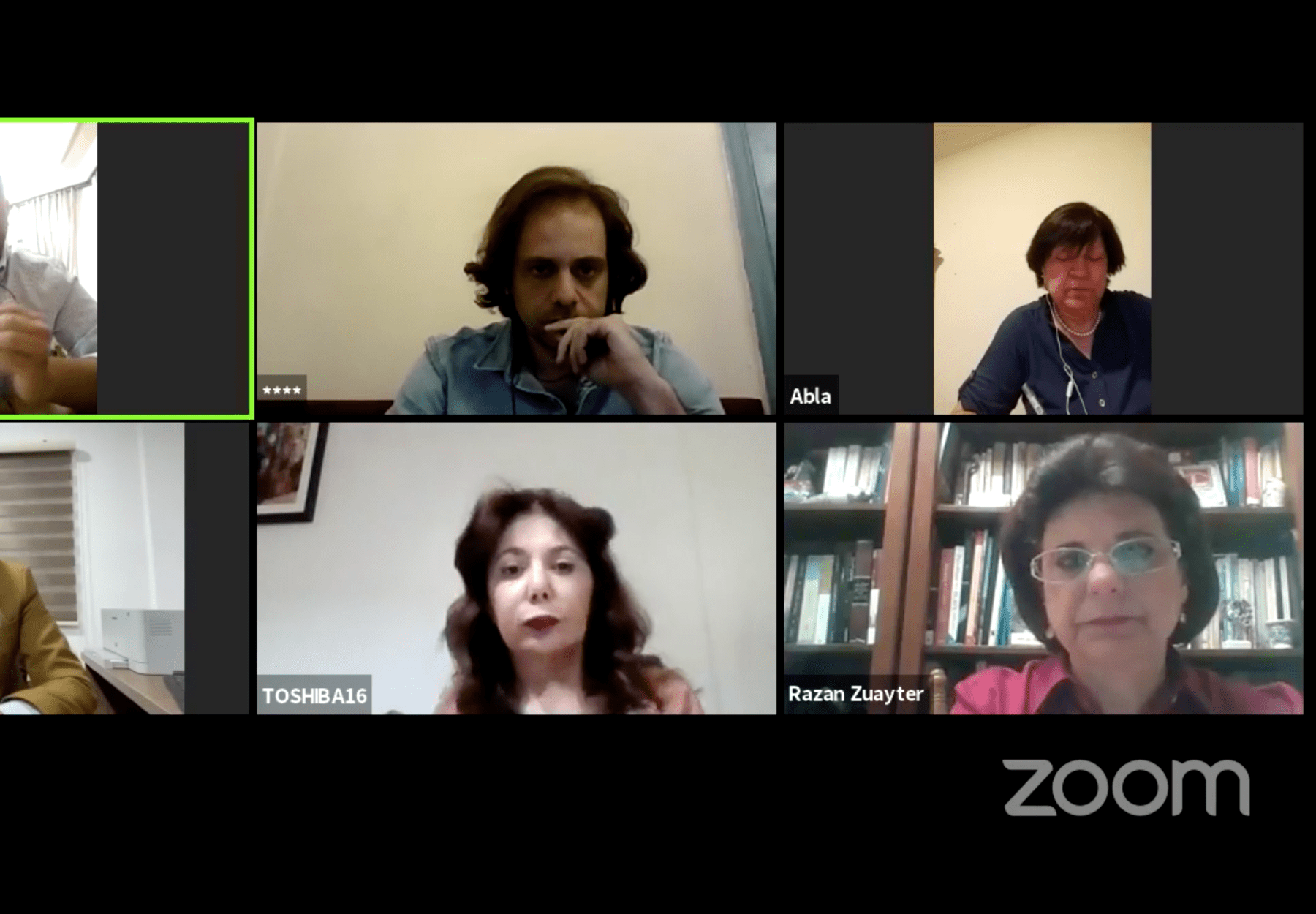
Razan Zuayter, the General Coordinator of the Arab Group for the Protection of Nature and President of the Arab Network for Food Sovereignty, spoke in a digital forum for activists and politicians to talk about the fate of food security in light of the Israeli entity’s "annexation decision.” The meeting was held by "Jordan BDS,” on June 18, 2020.
Zuayter asked, "Are these lands not already annexed?!", explaining that the Jordan Valley has not been immune to Israeli violations and land seizures. She stressed that the current annexation plans are a continuation of longstanding policy that began with the establishment of the Zionist project. Zuayter said that increasing control over Palestine’s natural resources is a driving force for placing the Jordan Valley under Israel’s alleged sovereignty. She explained that targeting Palestinian food sovereignty and security will lead to political weakness, frustration and hopelessness, allowing the occupation to continue suppressing Palestinians and pushing them to emigrate. Zuayter described full Israeli control over the Jordan Valley as a "dungeon" and a “ghetto” for Palestinians, as it will block them from contact with other Palestinians, Jordanians, and the world at large.
Zuayter told the group that in 1967, 90% of Palestinians had food security, while in 1993, just 20% had food security and the vast majority became dependent on Israeli food products. She added that about 30% of Palestinians are food insecure now, and the Palestinian Authority imports 95% of its wheat. She spoke abut the extreme fertility of the Jordan Valley, which provides the Palestine with 60% of its vegetables, 40% of its citrus fruits, and all of its bananas and dates. Still, she explained, Palestinians are only able to utilize 50,000 out of 720,000 dunums of land in the valley, while around 70,0000 serve the settlements, and the majority (400,000 dunums) constitutes closed military zones. This “divine greenhouse” suffers from a long history of Israeli violations, including natural resource policies––which, for example, give settlers seven times as much water as Palestinians––and the seizure of nearly a million dunums under land confiscation laws.
Zuayter touched on the implications of the annexation for Jordan, noting that the Kingdom will face the same dangers in the region, including the threat of confiscation and occupation. Land inside Jordanian borders has long been subject to violations, including systematic fires set in agricultural areas, the release of wild boars to eat seedlings and suspicious land sales (a large amount of the Jordan Valley is sold in strange deals to fake persons). Zuayter asked: “what is our role in confronting this, and what are our means of oversight and accountability, at the civil society and official levels?”
Zuayter indicated that financiers in Jordan consistently promote tourism, while they neglect agriculture projects in the Valley and claim that they over-consume water. She pointed to a study carried out by APN which concluded that <0.5% of American support (USAID) goes towards agricultural projects and warned that the area is losing its rich agricultural value. Zuayter said that she is proud of APN’s green resistance (resistance through cultivation) on both sides of the Jordan Valley. APN has planted over 110,000 trees on the Jordanian side to support around 2,300 citizens and 148,000 trees on the Palestinian side to support around 6,000 citizens.
She recommended joint economic and agricultural ventures to serve Jordan and Palestine alike, while maintaining that the most important objective is developing economic, political and military power to counter annexation and other occupation plans, saying that while diplomatic measures are useful, a "deterrent force" must be formed. She argued that food sovereignty is one pillar of this force.
Zuayter concluded by recalling the sayings she inherited from her father, Akram Zuayter, who remained optimistic while fighting for Palestine and stressed that the Arab people are alive and the spirit of the Palestinians will not die. Even at the signing of the Wadi Araba agreement (the Israel–Jordan peace treaty) in 1994, he remained optimistic, underscoring that the Arabs, Jordanians and Palestinians will realize that peace is nothing but an illusion, and that the Arabs will choose another way to deal with the Israeli entity. Now, Razan Zuayter stressed that after 26 years, her father was proven right: there is no benefit to be obtained from peace with the occupation.
Participants in the event included: the Secretary General of the Jordanian People's Democratic Party, Abla Abu Elbeh; journalist and political analyst, Lamis Andoni; founder of the Zikra initiative, Rabee Zureikat, and activist Mohammed Al Zawahra. The event was moderated by activist Hamza Khader.